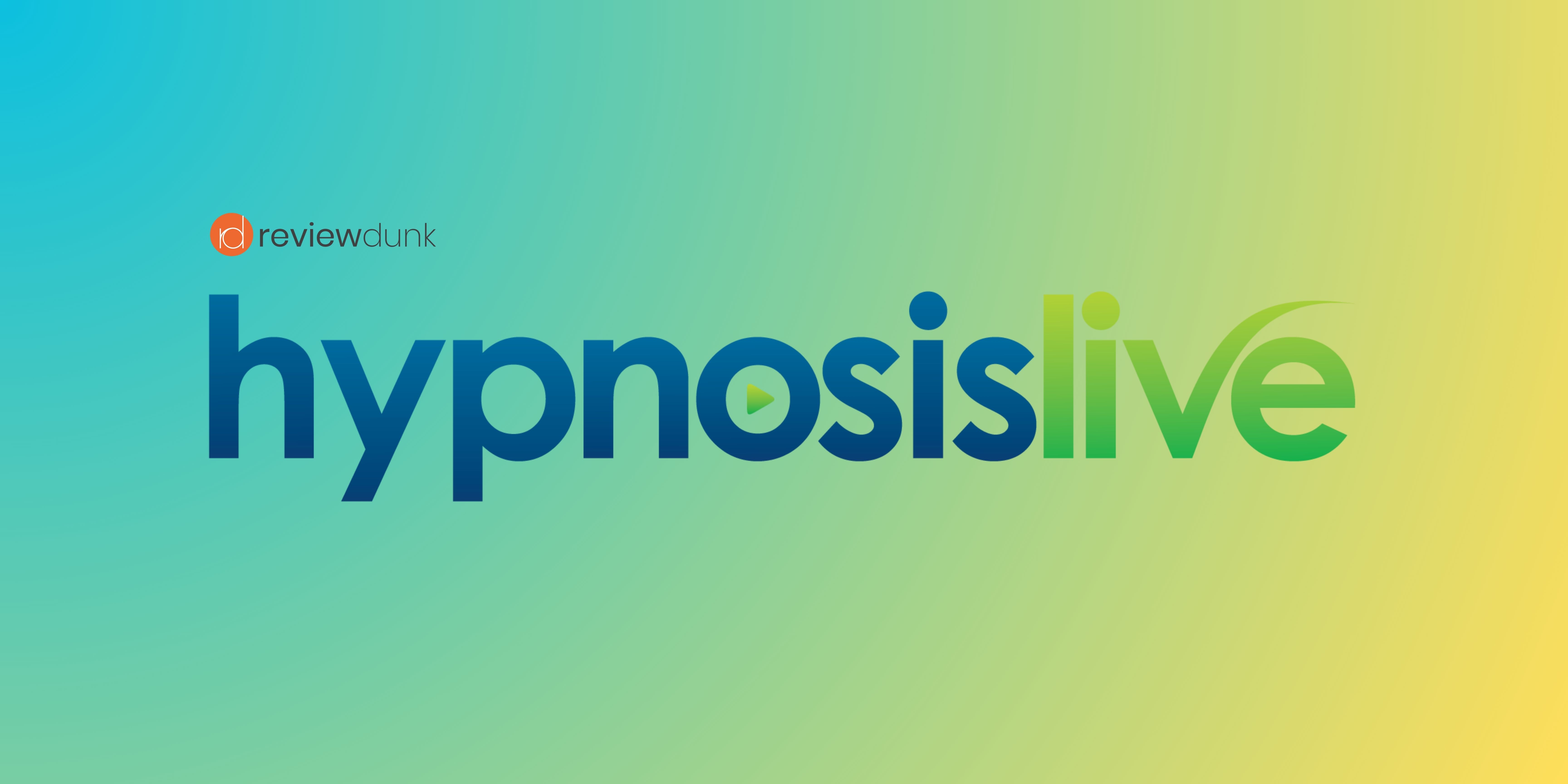Hypnosis Live Review: Beginner-Friendly or Dangerously Basic? Our Hands-On Verdict

I see countless programs promising rapid transformation, and frankly, my scientific training makes me skeptical.
So when I kept hearing about the Hypnosis Live program, which claims to certify you in hypnotherapy in just a few days, I knew I had to investigate. Can you really master a complex therapeutic tool in a single weekend? Is this a genuine breakthrough in accelerated learning, or is it just clever marketing that oversimplifies a powerful practice?
I decided to find out for myself. I paid for the course, cleared my schedule, and participated in the entire training, taking detailed notes every step of the way. I tested their claims so you don’t have to risk your time or money.
This is not a sponsored post. This is a real, hands-on breakdown of what you get, what works, and the major red flags I spotted. So, let’s get into this detailed Hypnosis Live review.
What is Hypnosis Live? A Quick Breakdown
At its core, Hypnosis Live is an intensive, short-form training program designed to teach the fundamentals of hypnosis. It's typically offered as a live online or in-person workshop, often condensed into a single weekend.

The central promise is speed and accessibility. It positions itself as the fastest way to go from a complete novice to someone capable of hypnotizing others and holding a “hypnotherapist” certification. The marketing is aimed at people who are curious about hypnosis, want to add a new skill, or are perhaps looking for a new career path without the time and expense of a traditional, long-term education.
Think of it like a language-learning bootcamp that promises fluency in 72 hours. You’ll definitely learn some key phrases and grammar, but will you be ready to write a novel? That’s the central question I wanted to answer.
The program is designed to feel immersive and practical, focusing more on doing than on dense academic theory. You can see the complete program curriculum on their official site to get a feel for the structure.
How Does Hypnosis Live Claim to Work? The Science (and the Hype)
Before I jumped into the training, I analyzed their methodology. The program is built on a few key ideas, some of which have a basis in cognitive science, while others, I found, stretch the truth.
The Core Premise: Rapid Skill Acquisition
The program operates on the principle of immersive learning. The idea is that by concentrating learning into a short, intense period, you can form neural pathways faster than with spaced-out lessons.
There is some scientific merit to this. Research on immersive environments, particularly in skill-based fields like surgery or language, shows it can be highly effective. A study from the University of Chicago found that math-anxious students benefited significantly from one-on-one, intensive tutoring.
However, hypnotherapy is not just a mechanical skill; it’s a nuanced psychological practice.
The program’s premise is that hypnosis is a simple, repeatable process that anyone can learn quickly.
While the basic steps of an induction are formulaic, this view dangerously overlooks the complexities of the human mind, ethics, and the therapeutic relationship.
The Role of 'Live' Training
The "Live" in Hypnosis Live is a major selling point. The theory is that live interaction with an instructor and fellow students provides immediate feedback, builds confidence, and creates accountability. This is a solid educational principle. Active learning, where you participate rather than just listen, is consistently shown to be superior for retention.
During my test, the live format was indeed engaging. There were breakout rooms for practice and Q&A sessions.
⚠️ Red Flag I Spotted: The instructor-to-student ratio was a concern. With dozens of people in a session, personalized feedback was minimal. The "live" practice felt more like following a script with a partner than being guided by an expert. It was good for building initial confidence, but it lacked the detailed correction necessary for true mastery.
The Certification Promise
This was my biggest point of skepticism going in. Hypnosis Live promises a "Hypnotherapy Certification" upon completion of the weekend course. This sounds impressive, but the term "certification" is unregulated in this context.
Here’s the truth: The certificate you receive is from the Hypnosis Live organization itself, not from a recognized, independent accrediting body like the American Psychological Association (APA) or the National Board for Certified Clinical Hypnotherapists (NBCCH).
This is a critical distinction. While the program page proudly displays its certification seal, this credential does not qualify you to practice therapy in a clinical setting or deal with serious psychological issues. It simply confirms you completed their specific training.
My Hands-On Test: A Look Inside the Hypnosis Live Program
I cleared my weekend and logged in, ready to become a certified hypnotist. Here is a day-by-day breakdown of what I found inside the program.
The Sign-Up and Onboarding Process
The sign-up was straightforward. I paid, received immediate confirmation, and got access to a portal with the schedule and some pre-reading materials. The materials were light—a few short PDFs on the history of hypnosis and a glossary of terms. It was accessible, but felt more like a pamphlet than a pre-course textbook. There were a couple of upsell offers for advanced courses, which is standard but always something I note.
Day 1: The Foundations of Hypnosis
The first day was all about theory. We covered:
- A brief history of hypnosis (Mesmer, Braid, Erickson).
- Myths vs. facts about hypnosis.
- The conscious vs. subconscious mind (using the classic iceberg analogy).
- The concept of suggestibility and how to test for it.
The content itself was accurate but incredibly simplified. It felt like the first chapter of an introductory psychology textbook, condensed into a few hours.
🔍 My Finding: The information was presented as a set of unchangeable rules rather than a dynamic field of study. There was no mention of the ongoing scientific debates around hypnosis or differing theoretical models. For a complete beginner, it’s an easy-to-digest introduction. For anyone with a background in psychology, it felt superficial.
Day 2: The Practical Techniques
This was the "hands-on" day, and the energy was high. We were taught several induction techniques, including:
- Progressive Relaxation: A standard technique of tensing and relaxing muscle groups.
- Eye Fixation Induction: The classic "look at this spot on the wall" method.
- Deepening Techniques: Using metaphors like walking down stairs to deepen the trance state.
We were given scripts for each and then paired up in virtual breakout rooms to practice on each other.
✅ What Works: This part of the training was genuinely helpful for one thing: demystifying the process. Actually reading a script and having my partner's voice get slower and their breathing deepen made me realize that inducing a light trance isn't black magic. The scripts were clear and provided a solid framework for a beginner to follow. For anyone who has ever wondered, "Could I actually do that?", this practical module offers a direct answer.
⚠️ Red Flag I Spotted: There was almost no instruction on how to handle abreactions (strong emotional releases), what to do if a subject doesn't respond, or the ethical considerations of using these techniques. We were practicing powerful psychological tools with less safety instruction than you’d get for a power drill.
Day 3: The 'Certification' and Marketing
The final day focused on bringing it all together. We ran through a full session with a partner, from induction to awakening. The last part of the day was dedicated to "starting your practice."
This module included:
- Basic marketing tips (print business cards, offer sessions to friends).
- A pre-written client intake form.
- Instructions on how to frame our new "certification."
The marketing advice was generic and felt dated. The real issue was the glossing over of legal and ethical responsibilities. There was no discussion of state laws, insurance, or when to refer a client to a licensed mental health professional. The message was, "You're ready to go!"—a sentiment I found irresponsible.
The Bonus Materials: Are They Worth It?
The course came with a library of downloadable scripts for various issues (e.g., smoking cessation, weight loss, confidence). The scripts themselves are fine as a starting point, but they are generic. Effective hypnotherapy often requires personalizing suggestions to the individual's unique language and worldview, a skill that requires far more training than this course provides.
Hypnosis Live Review: The Good, The Bad, and The Overhyped
After immersing myself in the program, I sat down to weigh the pros and cons. Here's my honest assessment.
| ✅ What I Liked: The Pros | ⚠️ What I Didn't Like: The Cons & Red Flags |
|---|---|
| Excellent for Demystification: It removes the fear and mystery around hypnosis. You leave understanding the basic mechanics. | Dangerously Superficial: The training lacks the depth needed to handle real-world client issues. It's a "paint-by-numbers" approach. |
| Builds Initial Confidence: The hands-on practice, even if basic, gives you the confidence to try these techniques in a low-stakes setting. | Misleading "Certification": The certificate holds little to no weight in the professional world and can create a false sense of expertise. |
| Engaging and Fast-Paced: The live weekend format is high-energy and keeps you engaged. It's a fun, interesting experience. | Lack of Ethical Training: The failure to adequately cover client safety, scope of practice, and ethics is a major professional failure. |
| Provides Usable Scripts: The included scripts are a good starting point for practicing basic inductions on yourself or willing friends. | Overpriced for the Value: For the same price, you could buy several in-depth textbooks and high-quality audio programs that offer more substance. |
| No Discussion of Nuance: It ignores how to adapt techniques for different personalities or what to do when things don't go as planned. |
The most significant concern is the gap between what is taught and what the certification implies. True hypnotherapy training involves hundreds of hours of study and supervised practice. As outlined in guidelines for therapeutic practices by organizations like the APA, ethical practice requires a deep understanding of psychology, something a weekend course cannot provide. If you’re considering this for professional reasons, I strongly suggest you review the program's claims against professional standards.
Who is Hypnosis Live For? (And Who Should Absolutely Avoid It)
This is not a one-size-fits-all program. Your goals are the single most important factor in deciding if this is right for you.
🔍 This Program Might Help You If...
- You're a Curious Hobbyist: You have no professional ambitions but are fascinated by hypnosis and want to learn the basics to try on yourself or friends.
- You Want to Overcome a Fear: If the idea of hypnosis intimidates you, this course does a great job of making it feel normal and accessible.
- You're Looking for a "Taster" Course: You're considering a career in hypnotherapy but want to dip your toe in the water before committing to an expensive, year-long program. This can serve as a (pricey) introductory weekend.
⚠️ You Should Skip This Program If...
- You Want to Be a Professional Hypnotherapist: This is not a substitute for proper, in-depth, accredited training. You will not be qualified to open a practice and take on paying clients with serious issues.
- You Want to Heal Deep-Seated Trauma or Anxiety: The techniques taught are too basic for complex psychological work. Attempting to use them for this could be ineffective at best and harmful at worst.
- You're Looking for a Credible, Respected Certification: If you want a credential that will be recognized by professional organizations or insurance companies, this is not it.
Is Hypnosis Live a Scam or Legit? The Final Verdict
So, what's the bottom line? Is Hypnosis Live a scam?
No, I wouldn't call it a scam. You pay money, and you receive a service—a live training weekend. However, I believe it's built on a foundation of overhyped marketing and misleading promises.
It’s "legit" in that it delivers a fun, introductory-level workshop on hypnosis. It is not a legitimate pathway to becoming a qualified therapeutic practitioner. The problem isn’t the content itself, but the gap between the beginner-level content and the "certified professional" identity it claims to bestow.
Returning to my initial question: Is it beginner-friendly or dangerously basic? My verdict is both. It's friendly enough for a curious beginner, but dangerously basic for anyone who takes the "certification" at face value and believes they are prepared for professional practice. You can explore the full course for yourself, but please do so with this massive caveat in mind.
Alternatives to Hypnosis Live: What I Recommend Instead
If after reading this you feel Hypnosis Live isn't the right fit, here are some alternative paths to consider, based on your goals.
For Serious Practitioners: Accredited Training Institutions
Look for programs accredited by national, independent bodies like the NBCCH, the American Council of Hypnotist Examiners (ACHE), or those affiliated with licensed universities. These programs involve 100-500 hours of training, supervised practice, and deep dives into ethics and psychology. They cost more, but they provide a legitimate education.
For In-Depth Self-Study: Books and Academic Resources
For a fraction of the price of the Hypnosis Live course, you can buy the foundational texts on the subject. Look for work by Milton H. Erickson, the father of modern hypnotherapy, or Dave Elman. This approach requires self-discipline but provides far more depth. Research from Stanford University's School of Medicine has explored the neural correlates of hypnosis, and digging into this kind of science gives you a much richer understanding.
For Personal Growth: Self-Hypnosis Apps and Audios
If your goal is simply to benefit from hypnosis yourself—to reduce stress, improve sleep, or build confidence—there are countless high-quality apps and audio programs available. Look for those created by licensed psychologists or certified hypnotherapists. They are affordable, safe, and designed specifically for self-use.
Frequently Asked Questions (FAQ)
1. How long is the Hypnosis Live training? The core program is typically an intensive weekend workshop, running for two or three full days.
2. Is the Hypnosis Live certification real? The certificate is real in that the company issues it upon completion. However, it is not recognized by major, independent psychological or medical accrediting bodies. Its professional value is extremely limited.
3. Can you really learn hypnosis in 3 days? You can learn the basic steps of a hypnotic induction in three days. You cannot, in my professional opinion, learn the nuance, ethics, and therapeutic skill required for professional practice in that time.
4. What's the cost of Hypnosis Live? Pricing can vary, but these intensive workshops typically cost several hundred to over a thousand dollars. You should check the official site for the most current pricing.
5. Is the training suitable for working on issues like anxiety or trauma? Absolutely not. The techniques are far too basic for serious psychological conditions. Attempting to do so would be irresponsible. Please seek a licensed therapist or counselor for these issues.
My Final Thoughts: Is Hypnosis Live Worth Your Money?
So, here is my final, unfiltered thought. As a scientist, I can't endorse any program that oversimplifies the human mind. As a consumer advocate, I can't recommend a course where the perceived value of its main promise—the certification—is so inflated.
If you have a thousand dollars to spare and your goal is simply to have a fascinating weekend learning a new party trick, then you might enjoy it. But for nearly everyone else, that money is better invested elsewhere.
If you are serious about becoming a practitioner, invest in a proper, accredited education. If you are serious about your own personal growth, invest in books, reputable audio programs, or sessions with a qualified professional.
This program exists in a gray area between entertainment and education, and while it might be entertaining, I found the education to be dangerously incomplete. That is my honest finding in this Hypnosis Live review.
Still curious? If you've weighed the pros and cons and feel this experience is right for your specific goals, you can learn more directly from them. You can find the official Hypnosis Live program here.


